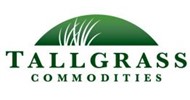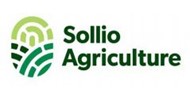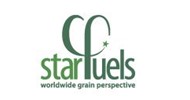The regulatory removal of AGP in Europe has prompted many new additives to appear in nutrition technology, or the reshaping of old additives for new applications. One of the most important segments of newer additives in animal nutrition are plant extracts.
Under this category, both essential oils and non-aromatic plant extracts are grouped together. Often both kinds of ingredients are used as combined additives, as there are claims that their association may have additive or synergistic effects. In this article we will focus on polyphenols.
Benefits of tea polyphenols
For the last 10 years, numerous papers on the use of polyphenols in animal nutrition and health have been published. Reviewing them, a summary of potential benefits can be made. Tea polyphenols, a mixture of phenolic compounds found in the tea plant (Camellia sinensis), are mainly composed of (–)-epicatechin (EC), (–)-epigallocatechin (EGC), (–)-epicatechin gallate (ECG) and (–)-epigallocatechin gallate (EGCG). These polyphenols have been recognised as potent antioxidants to scavenge cytotoxic ROS and protect normal cells. In a trial using diquat-challenged pigs (Deng, Q J et al.,) tea polyphenols administered through the diet at 500 mg/kg, partially reversed the decreased feed intake, growth rate and improved FCR (Fludarabine, Cyclophosphamide and Rituximab). Idiquat injection caused inflammatory interleukins to increase, while the tea polyphenols treatment reduced interleukin secretion, thus demonstrating its effect on controlling inflammation.Tea polyphenols were also shown to reduce the amount of liver lipids and abdominal fat mass, due to enhanced activity of AMP-activated protein kinase that stimulates fat oxidation and reduces lipid synthesis.

Polyphenols tested in pigs
Three commercial products containing polyphenols of different origins were tested in a pathogenic E. coli assay with newly weaned piglets. Animals were orally challenged with the bacterium and assigned to groups. The polyphenol group animals received the products through their diet. Two of the polyphenols controlled diarrhoea and E. coli excretion through faeces.
Resveratrol
Resveratrol assays in chickens caused a quadratical response improving average daily gain, antibody titres against Newcastle disease virus, and insulin-like growth factor-1 expression (Zhang, C et al.,). Resveratrol supplementation delayed cell proliferation and reduced apoptosis in immunocytes. Dietary resveratrol supplementation improved growth, protected immunocytes against antigen-induced apoptosis, and upregulated immune response in chickens that received conventional vaccinations.
Sweet chestnut
The effect of sweet chestnut tannins on several aspects of animal rearing have been reported. Tests with commercial sweet chestnut extract (Schiavone, A. et al.,) showed improved chicken performance at low and medium dose, and especially in the first phase of rearing. The higher dose demonstrated negative effects. No improvement on nutrient digestibility was observed at any dose.Sweet chestnut tannins showed high inhibitory activity upon Chlostridium perfringens. Other tannins from chestnut, sumach, tara and quebracho were tested against Salmonella,a bacterium responsible for food intoxications. Gallotannins from sumach and tara, and ellagitannins from chestnut wood showed inhibitory activity in vitro.
In pigs, the effect of sweet chestnut tannins caused lower oxidation in the meat after slaughter, with no impact on growth or performance.
Grape skins and seeds
Grape skins and seeds are a rich source of flavonoids and studies have shown flavonoids act as powerful antioxidants by scavenging free radicals and terminating oxidative reactions. When applied to poultry diets, together with vitamin E, there was no effect on growth rate or performance, but liver tocopherol increased and meat oxidation after slaughter decreased.
Grape polyphenols can constitute a novel source of antioxidant for poultry, reducing lipid oxidation of meat. Grape seed polyphenols (Viveros) administered to chickens caused increased microbial diversity in several segments of the intestine. Additionally, gut morphology improved, which may lead to improved gut functionality. Grape polyphenols increased body weight and growth efficiency in chronically heat-stressed animals and reduced the gene expression of heat shock proteins, indicating a beneficial impact of polyphenols for animals reared in hot climates.
Polyphenol applications in animal rearing
Inflammation
Inflammatory syndromes may be linked to the use of unsaturated oils as energy sources in pigs and poultry, especially from vegetable sources. Inflammation (Gessner K et al.) is a natural reaction when microbial toxins or toxic chemicals from feed come into contact with tissues in the intestinal environment, where this reaction may damage the tight junction. This structure regulates the paracellular absorption route, and its damage opens up the passage to toxins and microorganisms that invade the inner layers of the intestine, creating a protein- and energy-consuming response from the body. Polyphenols (Zhu, C.) may help in maintaining the integrity of this critical structure.
Antioxidation
Flavonoids (one type of polyphenol) scavenge free radicals and act as strong antioxidants and chelators of minerals (Foti MC). They also activate antioxidant enzymes, reduce alpha-tocopherol radicals and inhibit oxidases. This improves metabolic processes and, in general, animal productive behaviour.
The antioxidant activity of polyphenols appears to complement vitamin E activity.
Lowering the antioxidant status in production animals extends beyond the growth phase. Some studies (Brenes, A. et al.,) show that meat quality improves and shelf life extends when animals are supplied with polyphenols in the diet.
Gut microbiology and structure
Polyphenols and their metabolites can affect the intestinal ecology modulating microbiota (Etxeberria, U. et al.,). In this sense, several phenolic compounds have been identified as potential antimicrobial agents with bacteriostatic or bactericidal actions (Elizondo and Costabile, A et al.,). Some phenolic compounds may have potential to be applied as antimicrobial agents against infections.
Microbiota modification and gut structure improvement is critical to modern nutrition practice. One of the effects reported from the use of polyphenols is decreased apoptosis, or cell death. Decreased apoptotic rates means less energy and protein use for cell replacement, and more left for animal development. All in all, a net benefit for the animal and the producer.
Conclusion
Science continues to demonstrate the benefits of using natural polyphenol ingredients for the health of animals and the production of cleaner meat products. TruGro® is one source for natural polyphenol ingredients for animal feed. TruGro ingredients, and expert formulation advice are available from Layn (www.layncorp.com).

Source: Allaboutfeed
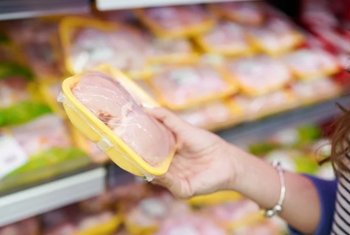 Consumer behavior changing dramatically in Asia
Consumer behavior changing dramatically in Asia 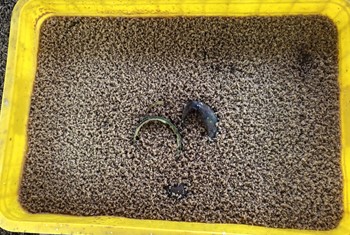 Raising this species of flies and then taking the eggs to sell for 3 million VND / 100 grams of fly eggs
Raising this species of flies and then taking the eggs to sell for 3 million VND / 100 grams of fly eggs 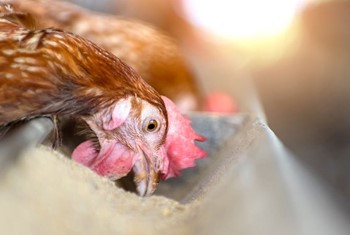 Poland: Poultry feed production hampered by Covid-19
Poland: Poultry feed production hampered by Covid-19 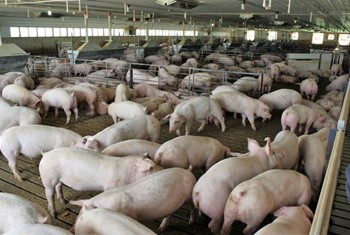 How to slow pig growth due to Covid-19?
How to slow pig growth due to Covid-19? 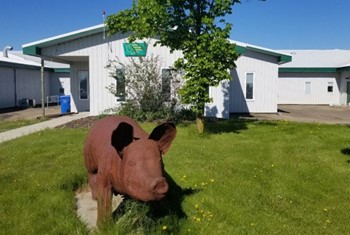 June feed update: What did you miss?
June feed update: What did you miss? 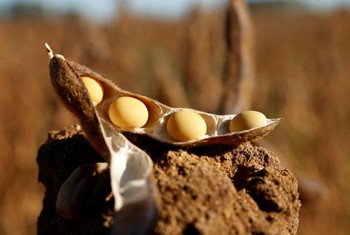 Good weather in the US slightly reduces soy price
Good weather in the US slightly reduces soy price PTT Trading Service Co., Ltd
(Vietnam Address)
462, Pham Thai Buong Street,
(R3-37 My Toan 1 - H4), Phu My Hung,
Tan Phong Ward, District 7,
Ho Chi Minh City, Vietnam
Tel: (+84) 286 6868 5888
Singapore Office:
Blk 457, Pasir Ris Drive 4, #09-305
Singapore 510457
Contact: (+84) 903 077 931
Email: jeffreypang@pttgroup.org




